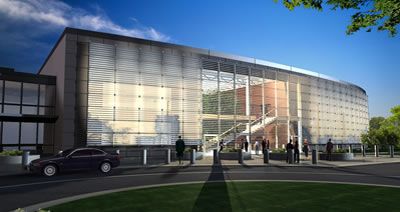Welcome to Sean C. Ehlers' AE Senior Thesis e-Portfolio
Reflection
ABET Outcome Survey
Place a check in the box that best describes the correlation between the
ABET Outcomes and what you learned in AE 481W/482: Senior Thesis.
Highlight the box and type a capital X.
| ABET Outcomes AE 481W/482 |
Outcome not able to be
assessed (Score
of 0) |
Level of ability demonstrated
but below acceptable (Score
of1) |
Minimum acceptable level
of ability demonstrated (Score
of 2) |
More than minimum level
of ability demonstrated (Score
of 3) |
|
a. An ability to apply knowledge of mathematics, science,
and engineering |
O |
O |
O |
X |
|
b. An ability to analyze and interpret data |
O |
O |
O |
X |
| c. An ability to design a system, component, or process
to meet desired needs |
O |
O |
O |
X |
|
e. An ability to identify, formulate, and solve engineering
problems |
O |
O |
O |
X |
| f. An understanding of professional and ethical responsibility |
O |
O |
X |
O |
|
g. An ability to communicate effectively |
O |
O |
O |
X |
| h. The broad education necessary to understand the
impact of engineering solutions in a global and societal context |
O |
O |
O |
X |
|
i. An
ability to engage in life-long learning |
O |
O |
X |
O |
| j. A knowledge of contemporary issues |
O |
O |
X |
O |
|
k. An ability to use the techniques, skills, and modern
engineering tools necessary for engineering practice |
O |
O |
O |
X |
| o. Engineering design capabilities in at least two
(2) of the (3) basic curriculum areas of architectural engineering,
and that design has been integrated across the breadth of the program |
O |
O |
O |
X |
| p. Communication and interaction with other design
professionals in the execution of building projects |
O |
O |
O |
X |
AE 481W/482 Course Reflection
As seen throughout this web-page, my Senior Thesis dealt with the Capital One Lecture Hall Addition. Coming into the Fall semester, I felt uneasy thinking that my summer project would not have been large enough to be an acceptable building. Once given final approval by the Architectural Engineering department, due to the structures complexity, my initial concerns were no longer.
Having a summer internship
with DAVIS Construction Corporation came to be an invaluable experience
both inside the classroom and out. Both my Senior Project Manager and Assistant
Project Manager were Penn State Architectural Engineering graduates and
knew what was to be expected throughout the year once my internship was
over. An open path of communication through emails and site visits from
time to time were the sources of much of my information utilized for Thesis.
CPEP & Discussion Board Reflection
